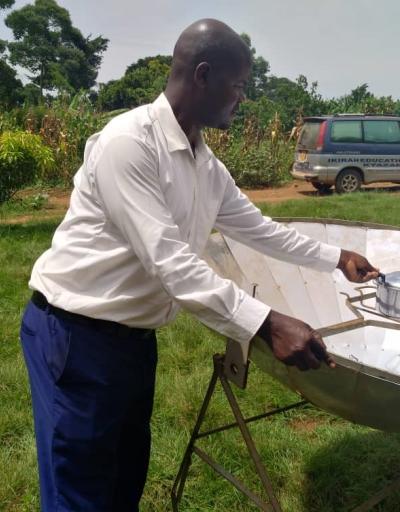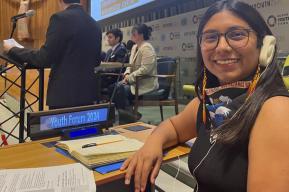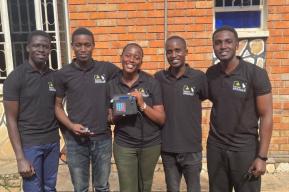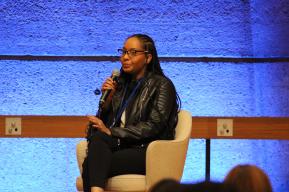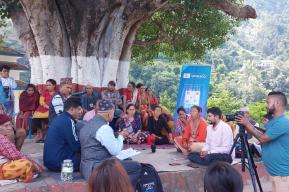Our school is located in an area that is affected by climate change, it is very dry here,” explains headmaster Hamuza Kabugu of the Ikirah Education Center in Bukyanagandi in Southwestern Uganda. “After joining UNESCO ASPnet in 2012, we realized that among the important themes is the education for sustainable development.” The school has since been committed to implementing a whole-school approach. Teaming up with several partners in politics, research institutions, and other schools, the school has been able to find creative and innovative solutions for different problems around climate change in its direct environment and to provide engaging learning opportunities for the students.
Recognizing the potential and motivation of the students and educators, in 2015, a member of the Ugandan parliament connected the school to the Ugandan Industrial Research Institute (UIRI). The school already had a programme of producing their own soap on the campus. The UIRI provided them with machines and conducted trainings at the school for a more environmentally friendly soap production. They also officially certified the school’s soap and enabled further collaborations. For example, after the outbreak of the Covid-19 pandemic the school donated soap to a nearby hospital. This donation was possible through the collaboration with the German NGO “Kinderhilfswerk Uganda”. Furthermore, in 2017, the school successfully applied to an environmental teaching support scheme of the Ugandan environmental ministry (NEMA), which supplied them with solar panels to provide an alternative source of energy to wood burning. The school has also experimented with cow dung for biogas production to power lamps and stoves, which is now widely used by the communities surrounding the school. As Kabugu explains: “The students, and the politicians, the religious leaders, all of them need to come on board. It is important not to think about classroom work only. We begin with the students, because they are the change agents. They learn what to do and then they take the information from the school to the community and to their parents.” Student Lamula Kyakunzire describes how she convinced her family to plant trees around their home: “If we do not teach our communities about the dangers of Global Warming, they will continue the deforestation. And now the changes are visible. After having learned about the usage of cow dung for biogas production, many of the community members have switched to this sustainable source of energy.”
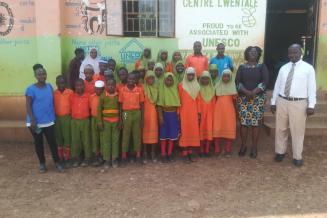
Headmaster Kabugo also works hard to offer his students and educators a way of sharing their knowledge and experiences with five other schools in the area as well as with an ASPnet school in Germany, the Dietrich-Bonhoeffer-Gymnasium, because, as Kabugu states, “if we do not share our good practices with other schools then they are going to die with us. The students train the students, and the teachers train the teachers. And we tell them that we started with UNESCO.” After these exchanges other schools have taken up such practices like planting trees and harvesting rainwater.
The international exchange with the partner school in Germany has grown strong over the years to share “problems, opportunities, science and cultures.” As Kabugo explains: “We tell them what we do here, they tell us what they do there, for example to decrease school emissions of carbon dioxide in the atmosphere and we learn from each other and together.” Through these exchanges, the German school also learned that the Ikirah Education Center needed a new water tank and supported them financially in acquiring it. Their reciprocal visits were only interrupted by the Covid-19 pandemic, but the online exchanges continue.


